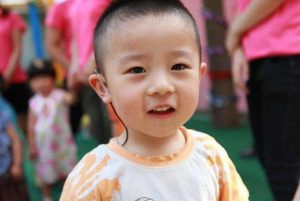Significance and objects of newborn hearing screening
Hearing impairment (ie, hearing loss or hearing dysfunction) is the most common physiological defect in humans and one of the most important causes of disability. There are 116 in China, and the annual increase is from 2 to 4. The purpose of newborn hearing screening is to detect individuals with hearing impairment as early as possible so that they can be properly intervened before the critical age of language development so that language development is not compromised. Early detection of hearing impairment is the only important factor in preventing language development disorders in children with hearing impairment. Regular physical examinations and parental identification can hardly detect hearing impairments in the first year after the child is born, thus missing the best time to treat. Only newborn hearing screening is an effective way to detect hearing impairment early. It is currently believed that the etiology of auditory neuropathy is related to factors such as hypoxia, hyperbilirubinemia, and oxygen free radicals. Therefore, hearing screening for high-risk newborns must pass brainstem evoked potential examination. Hearing screening is required for children born in hospitals, maternity homes, and health centers. If you find a problem, you should enter the diagnostic procedure in time. If the diagnosis process determines that the child has hearing impairment, it is necessary to help within 6 months. This is a very important and important aspect for improving the quality of the population and avoiding the presence of deaf people. Therefore, every newborn must have a hearing screening <Otoacoustic Emissions> three days after birth. Every high-risk newborn and/or otoacoustic emission fails to perform auditory brainstem evoked potential examination.

Common sense of children’s hearing disorders
Exudative otitis media is a common otologic disease. The middle ear non-suppurative inflammatory disease is characterized by tympanic effusion and hearing loss. The incidence rate is about 4%-10%. The occurrence of this disease is mostly with the eustachian tube. Poor function, infection and low immunity. Because the clinical symptoms are not typical, it is often difficult to find early. Children with respiratory tract infections such as colds, rhinitis, sinusitis, etc., gradually affect the hearing as the disease progresses. Children’s performance is slow to respond to sound, and attention is not concentrated. Answers are not asked. When watching TV, the volume is often opened, and the academic performance is reduced. Some children complain of earache, stuffy feeling in the ear, and tinnitus in some children. With the development of science and technology, we now have the ability to screen for exudative otitis media in the early stage, so that the disease can achieve early detection, early treatment, and generally a good prognosis. Such as delayed treatment, the formation of eardrum adhesions, ossicular chain fixation, resulting in life-long irreversible hearing damage, the child’s lifelong learning, work has a serious impact. Most of the eustachian tubeitis is the early stage of exudative otitis media. The clinical manifestations are more atypical. It often occurs unconsciously after the upper respiratory tract infection. If it is found in the early treatment, it will heal quickly. Otherwise, it will develop further to form exudative otitis media.
Found that the child is not normal, early diagnosis to the hospital is the key
In the early days, a parent found that his child was not the same as his peers. He could not sit, climb, or walk. But the parents did not take it to heart, thinking that it was only later than other children. As a result, the child will not go to the clinic if he or she is still unable to climb and walk for one year and nine months. After examination, it was found that the adductor muscles of the lower limbs of the child had high tension, could not crawl, stood on the toes while standing, and some deformation of the spine. In this case, it is more difficult to correct.
If parents find out that their children are different from others in the early days, they will go to the hospital. The situation of the children is certainly not as serious as it is now. It is much easier to correct them than it is now. However, because the parents of this child have insufficient knowledge in this aspect, they think that the problem of the child is only general developmental backwardness, but they do not know that there are big problems. And delay the treatment of the child, which may bring lifelong regret.
Studies have shown that when the child’s posture is abnormal and the movement disorder is found, early treatment and early rehabilitation are performed, and the therapeutic effect is better. This is because the brain tissue of the early stage of the baby is in the most vigorous period of growth and development. The brain has strong moldability and strong compensatory ability. If appropriate stimulation is given during this period, it is possible to maximize the potential of the brain and promote compensation. Sexual recovery. Therefore, the more early the training, the more likely the child will return to normal levels. Remind parents here, when you find that your child is not normal, please take your child to the hospital as soon as possible, so as not to delay the best period of treatment, and bring regret!
Jinghao medical hearing aid reminder: hearing aids need to be professionally “fitted”, it is very important to choose a professional hearing aid fitting center and hearing aid fittings! All patients and friends have any hearing problems can call the Jinghao medical consultation, or personally Come to the fitting center experience. Hearing aid free consultation phone: +86-18566295705
You can also scan our WeChat public account for more information about hearing.


